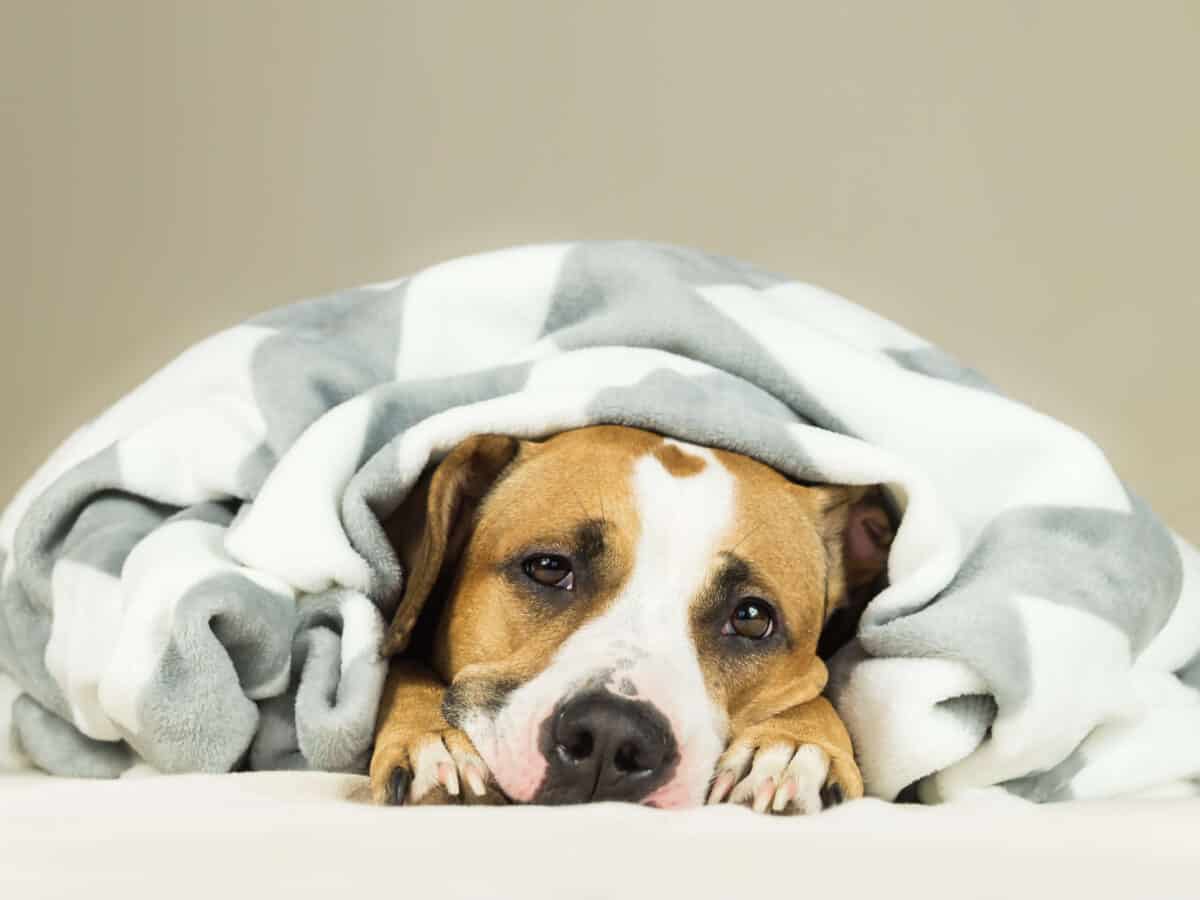What is Kennel Cough?

Are you boarding this holiday season? Are you having your pets groomed? Do you know where your neighbor’s dogs have been recently? All of these situations can cause concern for susceptibility to the disease commonly known as “kennel cough.” Here are a few tidbits you may wish to know prior to speaking to your veterinarian.
What is kennel cough?
The term “kennel cough” or "Canine Cough" is a broad term for the condition infectious tracheobronchitis. Simply put, it means inflammation of the trachea (windpipe) and bronchioles (air passages to the lungs). In essence, kennel cough is the terminology used for the canine common cold. It was labelled this because of the increased likelihood of its spread in populated environments like a dog kennel.
Wait, then what is Bordetella?
If you have a dog, at some point you may have heard your veterinarian recommend the Bordetella vaccine. Many of them will even call it the “kennel cough vaccine.” Bordetella bronticeptica is only one of the causes of the disease. It is a highly infectious bacteria that can be one of the many causes of infectious tracheobronchitis in dogs. It is best known for spreading around boarding and daycare facilities, grooming salons, or dog parks. Anywhere a dog could come in contact with other dogs creates a risk of catching Bordetella.
What causes kennel cough?
Kennel cough can be caused by not only bacteria, but also viruses. Any pathogen that infects the respiratory system in this way can be termed “kennel cough.” Therefore, I tend to refer to the disease as a canine cold rather than just by the single possible cause of the Bordetella bacteria. Changing the terminology used to refer to this disease helps us understand how this disease works. We can protect our pets against some bacterial causes of the disease plus some of the more dangerous viral causes (such as Canine Distemper) via vaccination, but unfortunately some less serious viral causes do not have a viable vaccination available. Therefore, your pet can still get kennel cough from another cause even if it is up to date on their vaccinations.
How does kennel cough spread?
The disease can spread in a variety of different ways. Airborne transmission is the most common due to the persistent cough the disease causes. This includes other respiratory drainage that may spread through the air. Crowded dog populations, such as shelter or boarding situations, can work as reservoirs to spread the disease quickly. Direct contact with an infected dog, or with contaminated inanimate objects can also spread the disease from dog to dog. Of course, this can be prevented with proper sanitation and protocols.
Is kennel cough contagious?
Kennel cough can be highly contagious. Just like a human common cold can spread quickly through your workplace, so can canine cough spread through canine populations. Plus, although rare, cats and humans (a form of whooping cough-like syndrome) have been able to contract Bordetella from infected dogs. It is important to isolate infected dogs from other household pets and from small children and immunocompromised individuals just in case.
What are the symptoms of kennel cough?
The biggest symptom that differentiates kennel cough from other respiratory diseases is a dry, hacking cough. This can persist for weeks to months following infection. The cough is often best described as a “goose honk,” and could be so forceful that it results in the animal retching or even vomiting from the exertion. The animal can also show other symptoms, such as, but not limited to, a fever, lethargy, nose or eye discharge, sneezing, and/or loss of appetite.
If my dog doesn’t go anywhere, do I need to worry about kennel cough?
Most dogs go outside to urinate and defecate, and as much as you may like to think your backyard is safe from infectious diseases, you are not able to control the situations your neighborhood pets are exposed to or their own vaccination protocols. Airborne transmission can easily travel into your yard or home to infect your pets. Another point to make, is when you take your dog for their walk around the neighborhood, park, or elsewhere. The spot your dog is so intent on getting his nose up in and sniffing is a possible site for indirect transfer of pathogens.
What should I do if I think my dog may have kennel cough?
Thankfully, the worst part of kennel cough is that it may stop you and your pet from getting a nice, restful, night’s sleep. Though this is a bit of a nuisance, it is not considered life threatening. Just like our human common cold, it is highly unlikely to be fatal or cause life-long medical issues. Mostly the cough can be very uncomfortable and persistent for most dogs.
Keep in mind that some more serious diseases may show respiratory symptoms that could be confused with kennel cough, so it is always advisable to take your pet to the veterinarian if symptoms arise.
How is kennel cough treated?
Treatment normally centers around controlling symptoms, such as cough suppressants (for an unproductive cough), antipyretics (fever-reducers), fluid therapy, and/or appetite stimulants depending on the severity of the disease. Antibiotics are only useful if the disease is caused by a bacterium and not a virus, so do not be surprised if your veterinarian does not prescribe antibiotics.
Remember to never give your pet medications labeled for human use unless directed to do so by your veterinarian. Many human medications can contain ingredients that are toxic and fatal to our pets.
How do you prevent kennel cough?
Vaccinations such as the Distemper combo vaccine (DHLPP, DA2PP, or DHPP) as well as the Bordetella vaccination can help prevent several of the more serious causes of kennel cough.
Boarding, grooming, daycare, shelter, veterinary, and other pet facilities should always follow appropriate sanitation protocols between each pet in case of possible infection.
In your household, infected dogs should be quarantined from other pets and household members for several weeks following infection. Everyone around the infected pet needs to practice good hygiene which means washing hands often, wearing personal protective equipment, and changing clothes after caring for the infected pet. Be sure to also sanitize all items the pet comes into contact with including bowls, toys, blankets, etc.
 Author - Katie Sinclair
Author - Katie Sinclair
Katie Sinclair, RVT, is the head instructor for the APC’s veterinary assistant program. She has been a part of the veterinary industry for 9 years, 7 of which as a Registered Veterinary Technician in the St. Louis area. She earned her Bachelor of Arts degree in Equine Science from Otterbein College (Westerville, OH) and earned her Associate’s in Veterinary Technology from Sanford-Brown College (Fenton, MO). Read her full bio.
References
Bauhaus, J. M. (2018, December 12). Kennel Cough in Dogs and Cats. Retrieved from Hill's: https://www.hillspet.com/pet-care/healthcare/kennel-cough-in-dogs-and-cats
Bennett, B. (2016, February 24). Kennel Cough in Dogs. Retrieved from Texas A&M Veterinary Medicine & Biomedical Sciences: https://vetmed.tamu.edu/news/pet-talk/kennel-cough-in-dogs/
